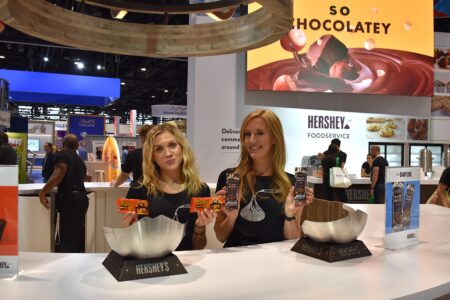Chocosuisse reports 20% drop in turnover for Swiss chocolate makers amid the pandemic

The association of Swiss chocolate manufacturers’, Chocosuisse, has reported the sector has suffered a 20% year-on-year drop in turnover for the second quarter of 2020, due to businesses affected by the coronavirus pandemic, writes Neill Barston
As the organisation noted to Confectionery Production, the industry outlook remains challenging with market uncertainties as the coronavirus crisis continues to impact significantly on European and global markets.
The country is home to major premium brands, including Lindt & Sprungli, Laderach, Chocolat Halba, as well as Mondelez International producing its Toblerone range (pictured) from the country, and Barry Callebaut having a base in the nation.
Significantly, Chocosuisse said that regulations such as price protection for sugar and milk powder had a negative effect on Swiss manufacturers compared to competitors based elsewhere – which has raised the prospect of job cuts within the industry.
After a subdued start to the year, sales volumes and turnover of Swiss chocolate manufacturers saw the negative trend intensify from May onwards. In the second period (May to August), the industry’s turnover fell by 21.5 percent compared to the same period in the previous year. Between the beginning of the year and August 2020, the decline in sales compared to the same period of the previous year totalled 14.3 percent. The negative development affects the domestic and export business.
Important export channels severely affected
The export share of the sales volume of Swiss chocolate is over 70 percent, with sales over the summer declining sharply, which the organisation noted was of particular concern. This was particularly impacted by the restrictions on worldwide travel, retail business, and business with international hotel, congress and travel catering. A recovery in these important markets is not in sight for a long time.
Similarly, in the domestic market, points of sale with normally high customer frequencies and international tourist traffic are particularly affected. The amount of Swiss chocolate sold domestically has been going down for some period. The beginning of the year fell significantly. At the same time, the amount of imported chocolate increased, meaning Swiss chocolate manufacturers EW under double pressure in their home market.
Furthermore, raw materials such as milk raw materials and sugar are very high in Switzerland because of border protection, making them more expensive than within neighbouring countries. Compensation mechanisms are incomplete or non-existent: Switzerland grants the EU a discount of 18.5 percent for imports.
The relative price increase as a result of the minimum border protection for Swiss sugar has resulted in a burden for those buying raw materials, and against this background, that of the National Council’s Economic Commission Proposal for the continuation of this protectionist measure sent for consultation is considered another major obstacle within the country. In its view, Chocosuisse said that instead of further weakening Switzerland as a production location, existing distortions of competition must now urgently be removed.



